
Jathedar of the Akal Takht, Giani Joginder Singh Vedanti, resigned yesterday without providing any real reason for the step down. From reports it seems that the Jathedar was asked to resigned late Monday night 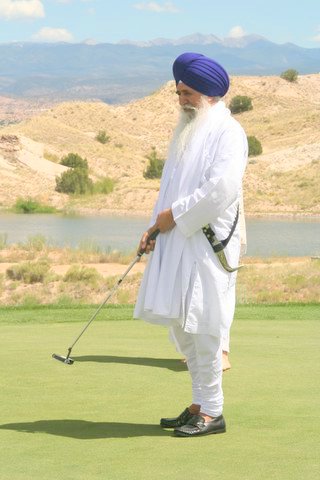 after some SGPC execs visited him at home – the apparent reason: differences of opinion with the Shromini Akali Dal (lead by Badal) and the SGPC (lead by Makkar). In an attempt to cover up the transparently obvious removal, the SGPC president, Avtar Singh Makkar attributed the resignation to Vedanti’s ill health. However, most sources reported something more along these lines:
after some SGPC execs visited him at home – the apparent reason: differences of opinion with the Shromini Akali Dal (lead by Badal) and the SGPC (lead by Makkar). In an attempt to cover up the transparently obvious removal, the SGPC president, Avtar Singh Makkar attributed the resignation to Vedanti’s ill health. However, most sources reported something more along these lines:
It is understood that Vedanti’s increasing proximity with hard liner Sikh organizations on the issue of Dera Sacha Sauda and his public opinion to vote for Sikh Prime Minister Dr. Manmohan Singh during UPA government’s trust vote on July 22 last were key factors that compelled SGPC to pack up Vedanti. The reports said that Punjab Chief Minister Parkash Singh Badal had told Vedanti to quit else he will be expelled.
After reading about Jathedar Vedanti removal and the circumstances, (like many others) I am a bit confused and disturbed with the recent trend – Jathedar Vedanti’s removal is not a first:
The removal of Bhai Jasbir Singh Rode as the Akal Takht Jathedar started the trend of sacking Jathedars. Previously, a Jathedar either resigned or died in office.
Bhai Ranjit Singh, the daring Jathedar of Akal Takht was sacked on April 28,1998 and SGPC installed Giani Puran Singh as the new Jathedar on February 15,1999. Vedanti was appointed as acting Jathedar of Akal Takht on March 28, 2000 after the SGPC then led by Bibi Jagir Kaur blamed Giani Puran Singh of violating the maryada (Sikh code of conduct) and sacked him.
I think what makes this most unsettling is the fact that the Jathedar of the Akal Takht is supposed to be given a certain degree of credibility and authority. The Jathedar is a Sikh leader; someone who represents our interests, is our ambassador, and serves as a guide to Sikhs worldwide. I’m not giving him/her Papal status by any means, but the Jathedar’s position is an executive role within the Panth and removal at the whim and fancy of often corrupt officials in the SGPC or the SAD illegitimates any credibility the position once held. The fact that the last four Jathedars have been “removed” by the SGPC/SAD & Co. says a great deal about the way our Panth is run…little of which can be construed in a positive light.
In a recent post, Camille asked important questions around growing Sikh female leadership/representation, rather than just “managing” it. At the heart of leadership in any organization is decision-making. A critical component of growing Sikh female-leadership/representation is giving access to decision-making spaces that are commonly occupied by Sikh men and incorporating female perspectives into decision-making. Thus, you will see the strongest battles for gender equity in Sikh organizations tend to be fought around decision-making power. A recent example of such a battle was at a Gurdwara in Bristol, U.K. where two factions were fighting over allowing women to take part in Gurdwara elections. Women were demanding the right to vote while also running for committee-member seats. This past Sunday during Gurdwara management-committee elections, both factions broke out into a riot over allowing 79 women to vote past the registration deadline.
According to the Daily Mail:
Six riot vans were dispatched to close the road in Fishponds, Bristol, and one man was arrested and cautioned for a public order offence during the seven-hour stand-off.
Voting finally finished at 4pm and resulted in three women being voted onto the management committee for the first time in the temple’s history.
The trigger for the riot was when one man frustrated by the situation started trouble inside the Gurdwara that spilled out onto the street where “women were blocking his car and trying to push it over while he was still inside clinging to the steering wheel”.
An elderly women at the site reported “… a crowd of mainly women and children stood on one side of the road and men on the other. They were fronting each other up and shouting abuse across the road. The women were screaming ‘we’re not going anywhere’.
All the headlines are centered on the news of the capture of Bosnian Serb wartime president, Radovan Karadzic. Karadzic has been indicted for genocide in the Bosnia war. Apprehended by government officials, a change in political winds in Serbia now-seeking EU membership has allowed for the present Serbian government to capture the thirteen-year fugitive. The world is now waiting for Karadzic to be transferred to The Hague to 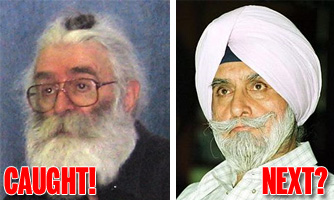 face trial.
face trial.
Karadzic’s soon-expected extradition and last week’s International Criminal Court (ICC) prosecutor request that genocide charges should be brought against Sudanese President Omar al-Bashir for state-sponsored pogroms in the Darfur region of Sudan is being watched the world over.
Karadzic’s arrest led to one Munira Subasic, head of a Srebrenica widow’s association (for more information on the Srebrenica Genocide/Massacre, click here), stated
“[Karadzic’s arrest] is confirmation that every criminal will eventually face justice.” [link]
I hope Subasic’s comments ring true. While I celebrate the capture of one tyrant, as a Sikh, my attention wanders (as it tends to) to the situation in Punjab and the Indian State.
A recent French decision brings debates about multiculturalism and accommodation back into focus. France’s highest administrative court prevented the wife of a French national and mother of 3 French- born children from obtaining French citizenship based purely on her wearing of a niqab– for “insufficient assimilation” into France:
…last month, France’s highest administrative court upheld a decision to deny citizenship to Ms. Silmi, 32, on the ground that her “radical” practice of Islam was incompatible with French values like equality of the sexes. [link]
The decision received support from some French-Muslim officials who do not support women’s wearing of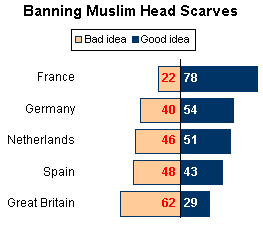 niqabs.
niqabs.
The ruling on Ms. Silmi has received almost unequivocal support across the political spectrum, including among many Muslims. Fadela Amara, the French minister for urban affairs, called Ms. Silmi’s niqab “a prison” and a “straitjacket.” “It is not a religious insignia but the insignia of a totalitarian political project that promotes inequality between the sexes and is totally lacking in democracy,” Ms. Amara, herself a practicing Muslim of Algerian descent, told the newspaper Le Parisien in an interview published Wednesday. [link]
There are major differences between the niqab and Sikh religious dress. The objection to the niqab that it’s incompatible with the French value of equality of the sexes doesn’t carry over to Sikh dress. The dastaar or pag doesn’t pose the same dilemma as both men and women may wear it, and it is not seen as an inhibition on gender equality generally.
Sorry for my long absence. Expect an explanation post very soon.
Although there is more current news, there are two past due topics that need to be discussed in The Langar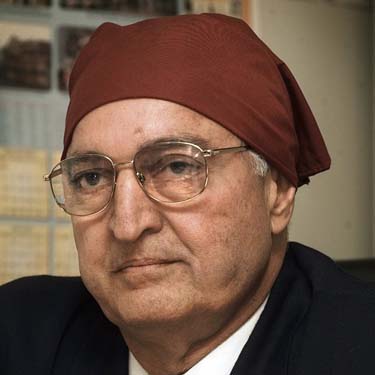 Hall. I begin with the first.
Hall. I begin with the first.
Now while Mack-10’s lyrics in the title of this post may not be completely appropriate, I use them to highlight a possible historic event in the Sikh community in Canada and beyond.
For those of us that grew up in the states, the Dasmesh Darbar of Surrey and the Guru Nanak Sikh Temple of Surrey entered our popular imagination in 1998 when Sikhdom was shaken by the inane “tables and chairs” controversy. A local Surrey conflict soon ballooned throughout the world and even saw violence at a number of different Gurdwaras in North America and Europe. A conflict, which most did not understand, divided local communities and caused rifts that still fester within the Sikh community today.
The worst-affected area was where the controversy initially began – Surrey, Canada. A new vocabulary entered into the language of Sikh-British Columbians: “fundies” verses “moderates.” A generation of Canadian youth saw rishtas broken and dinner conversations centered around “uthay ja thalay” (“up” or “down”).
 About a week ago, Sex And The City (SATC) hit theaters. Many may resist an association with the dating scene that the movie and show explored with the lives of Punjabi Sikh women, and wonder whether this is appropriate for The Langar Hall. But the stories and characters of SATC reflect broad ideas that apply to all women and since every woman I know has seen or is planning to see the movie, I’m curious about how these themes apply to Punjabi Sikh women in particular and how our experiences compare with other groups. This post does not promote anything portrayed in SATC, but instead explores the stereotypes in the characters and questions how our Punjabi-Sikh-ness affects how much of those stereotypes we embrace. First, what is SATC really about?
About a week ago, Sex And The City (SATC) hit theaters. Many may resist an association with the dating scene that the movie and show explored with the lives of Punjabi Sikh women, and wonder whether this is appropriate for The Langar Hall. But the stories and characters of SATC reflect broad ideas that apply to all women and since every woman I know has seen or is planning to see the movie, I’m curious about how these themes apply to Punjabi Sikh women in particular and how our experiences compare with other groups. This post does not promote anything portrayed in SATC, but instead explores the stereotypes in the characters and questions how our Punjabi-Sikh-ness affects how much of those stereotypes we embrace. First, what is SATC really about?
the three-girls-in-the-city movie… a cinematic staple since the 1920s, has been an unusually enduring and lucrative one, exploiting each succeeding era’s anxieties surrounding women’s changing roles and helping define those eras’ new ideas of modern life. In them, audiences can watch women negotiate and sometimes subvert the forces that limn and limit their choices. [link]
Through various posts on this blog, we have discussed the idea of activism (and even lacktivism) within the Sikh community. Recently I have been thinking about what activism meant to our parents’ and grandparents’ generation and in what form they expressed their personal and political thoughts. Twenty four years later, as we remember the events of 1984, we are reminded of how much these events raised Sikh consciousness. It is also a historic event in another sense. The response to the events of 1984 allowed for our parents and grandparents to stand in solidarity with other Sikhs and in doing so, mark their place in Sikh history on both a personal and political sense.
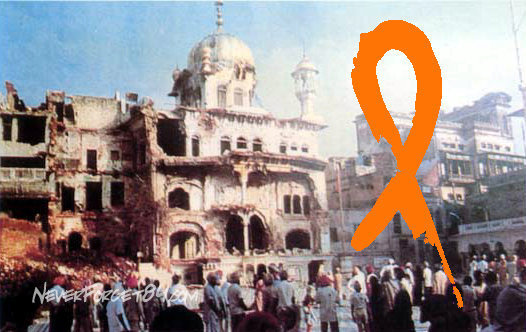 During those days and weeks following the invasion of the Darbar Sahib, hundreds and thousands of Sikhs took part in protests. I remember hearing about these stories from my Dad who ardently took part in these protests in London and Liverpool. However, what was more striking to me, was the role my Mum Mom played in these protests. I remember visiting a museum whilst on a school trip (a few years after 1984) and seeing pictures of the protests on display. I was caught off-guard as I saw a picture of my mother with her fist in the air protesting alongside other Sikh men and women. That image has stayed with me – essentially the activism that has always existed and remains to exist within our community. I wasn’t able to find much press about these protests, but did come across this clip.
During those days and weeks following the invasion of the Darbar Sahib, hundreds and thousands of Sikhs took part in protests. I remember hearing about these stories from my Dad who ardently took part in these protests in London and Liverpool. However, what was more striking to me, was the role my Mum Mom played in these protests. I remember visiting a museum whilst on a school trip (a few years after 1984) and seeing pictures of the protests on display. I was caught off-guard as I saw a picture of my mother with her fist in the air protesting alongside other Sikh men and women. That image has stayed with me – essentially the activism that has always existed and remains to exist within our community. I wasn’t able to find much press about these protests, but did come across this clip.
Please share your thoughts/memories.
Sharon Stone’s recent comments about whether or not the earthquake in China was due to bad karma over Beijing’s occupation of Tibet has caused quite a stir. Stone is now facing a backlash in China with her films being boycotted (Um, what films?) and luxury retailer Christian Dior pulling advertisements featuring Sharon Stone from stores. The Chinese earthquake killed at least 68,000 people. China has been under much scrutiny in recent months over Beijing’s policies in Tibet. “I thought, is that karma – when you’re not nice that the bad things happen to you?” she mused at the Cannes Film Festival. However, many people feel that Stone’s contextual use of Karma is simplistic and in fact, inaccurate (the actress later apologized for her remarks).
Karma is an important concept for Buddhists, Hindus and Sikhs. Translated from the Sanskrit, it means simply “action”. Because karma is used in a number of ways and contexts this can be confusing…Stone’s take on karma is common – glossed over as an outcome that is the result of something done in the past – or even a past life. But the law of karma states that it’s the motive behind one’s actions that affects the outcome of that particular act. “The earthquake in China or the cyclone in Burma have much to do with environmental factors,” says Dhammadassin. “To invoke karma is more to do with our desire to nail things down and find someone to blame. But that’s not ours to do.” [Link]
So, it got me to thinking about what Sikhi says about Karma. Sikhs use the term generously (and sometimes, not so generously) but perhaps we don’t have a solid understanding of what it really means. The doctrine of karma, according to Sikh belief, is a part of the Divine law (hukam). “The whole universe,” says Guru Arjan, Nanak V, “is bound by action, good or bad” (GG, 51). Guru Nanak declares in the Japji that “all forms, beings, greatness and lowliness, pain and pleasure, bounties and wanderings are subject to the indescribable hukam and there is nothing outside the realm of hukam,” (GG, 1) and then adds that “karma determines the kapra, i.e. body or birth we receive and that it is through nadar (God’s grace) that one secures the threshold of moksa” (GG, 2). [Link]
Do you believe in Karma?
The Punjab government has finally allocated funds to assess the breadth of farmer suicides in the state.
The Punjab Government seems to have finally woken up to the need of having a census on farmers’ suicides in the state. The state government, it is learnt, has the [sic] entrusted the arduous task of completing the census to the Punjab Agricultural University. As per Dr R.S. Sidhu, head of the Department of Economics, PAU, “The state government has asked us to do the work and we have taken it up as a research project. Though whole of Punjab is to be covered under the study, the state government has asked us to do a pilot project in two districts of Punjab, Gurdaspur and Sangrur initially.
The census will be conducted by the Punjab Agricultural University (PAU), based in Patiala Ludhiana. During the first phase of the survey, PAU will conduct a door to door survey in about 1,500 villages in Gurdaspur and about 575 villages in Sangrur out of the 12,000 villages in Punjab. The report from this initial phase is set to be completed in four months from the beginning of the survey, which is set to begin in the next couple of weeks.
The census will take into account farmer suicides occurring after April 1, 2005, excluding suicides of farm laborers.
Rising pesticide and fertiliser costs, shrinking land holdings, declining soil fertility and heavily-subsidized farming in wealthier countries are some of the factors blamed for these suicides.
 We’ve had a lot of discussion recently about various forms of identity discrimination. It seems that the UN is also paying attention to racial discrimination in the US:
We’ve had a lot of discussion recently about various forms of identity discrimination. It seems that the UN is also paying attention to racial discrimination in the US:
A U.N. expert on racism and xenophobia arrived in Washington yesterday for a three-week fact-finding visit to examine human rights lapses in the United States.
Despite Obama’s recent speech acknowledging racial tension, which was a long time coming, US representatives continue to deny that there is a problem.
“I think it’s important for the [U.N.] Human Rights Council to spend its time on real problems and the problems of violations of human rights of countries that are notorious violators,” said Zalmay Khalilzad, the U.S. ambassador to the United Nations, offering a list of suggestions. [emphasis added]
Mr. Khalilzad is well respected in comparison to his predecessor John Bolton, but that wasn’t too difficult of a feat, considering Bolton infamously stated “there is no such thing as the United Nations,” and that “the Secretariat building in New York has 38 stories. If you lost ten stories today, it wouldn’t make a bit of difference.” [link]
Mr. Khalilzad’s blatant denial of the problem of racial discrimination in the US is embarrassing, even for a diplomat. And the strategy of redirecting attention to other nations to divert attention from the very real problems at home is getting tiring- the US has no moral currency left in the international community with which to continue condemning others while allowing discrimination at home to fester.
Juan Cole drew an interesting parallel between the candidates vying for the Presidency and those competing in American idol’s finale:
I find it a little eerie how closely the finale of the television program American Idol resembles the presidential race. Here you have an older male from the school of hard knocks; a younger, soulful man who inspires his peers; and a woman candidate who shows amazing resilience.
The problem is that it isn’t necessarily a disservice to focus so much on the personalities of entertainers, though it’s much more so for presidential candidates:
when you cover an election as though it is a talent contest and you zero in on personalities
rather than issues, then this is pretty much the sort of melodrama you can construct. It becomes about determined women, less experienced young men, and more hardened older men who know how to mix a stiff drink. You would find these personalities in any tubby novel for sale at an airport bookstore. Mercado, Archuleta and Cook are far more complex and interesting persons than the stock characters that the media has imposed on them. But at least the wrong done them by simplification is minor; they are after all entertainers, and if they attain their potential they will have plenty of opportunity to tell their real stories.
With regard to our political leaders, the infotainment approach obscures the most weighty matters ever to face our Republic, and does a grave disservice to voters whose fate hangs in the balance.
Of course the candidates’ personalities matter to an extent- but it seems that 8 out of 10 articles/stories are more interested in personalities rather than candidates’ plans for office. Is anyone else tired of the excessive coverage and analysis of personalities?
Do some immigrant groups assimilate faster?
 Last week, USA Today published an article summarizing the results of the Manhattan Institute for Policy Research. The institute has computed a quantitative assimilation index to compare groups historically and from various nations. The report defines their index as follows:
Last week, USA Today published an article summarizing the results of the Manhattan Institute for Policy Research. The institute has computed a quantitative assimilation index to compare groups historically and from various nations. The report defines their index as follows:
The assimilation index can be decomposed along several other dimensions. The overall, or composite, index is based on a series of economic, cultural, and civic factors. These sets of factors can be examined in isolation to produce three component indices. The economic index compares the labor force, educational attainment, and home ownership patterns of the foreign- and native-born. The cultural index focuses on English-speaking ability, marriage, and childbearing patterns. The civic index examines naturalization rates and compares the military service patterns of the foreign- and native-born. [link]
Now let me tell you, just skimming it, there are SOO many problems with the methodology. Does ‘civic assimilation’ really only rest on military service patterns?
Going along with the theme of music which has been popping up all over TLH recently, I came across a documentary from the Asian Network discussing (what the presenter calls) the arrival of a new music scene in which religion is playing a large role in the work of British Asian artists. Now, “religious” music in this innovative sense may not be new to those of us who have been exposed to this type of music before, however as the documentary suggests, religion-focused music is becoming more mainstream and accepted (which, as will be discussed, can be a both positive and negative thing). There still exists the contradictory acceptance of religious music, however, with music promoting Sikh, Hindu, or Muslim values being viewed as conventional and any type of Christian pop/rock music seen as too radical. The question asked throughout the documentary is why is religious music “cool” for British Asians?
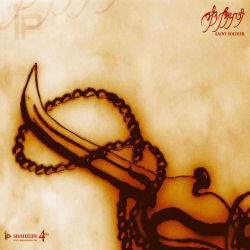 The argument is that an increasing number of youth are not attending Gurdwaras (or Mosques or Temples) and this type of music is much more accessible to this generation because of the medium in which the message is disseminated. Outlandish and Tigerstyle, two groups discussed in the documentary as promoting religious and political values through their music, are making music which is “real and more conscious” and by doing so, keeping the teachings of the religion alive. While we’re all familiar with Tigerstyle, Outlandish is a hip-hop group based in Denmark whose music includes themes about Islam and contemporary issues facing young Muslims in the west. For too long now, music within the Indian community has been lacking substance. While mixing religion with music is a challenge in secular communities in which these artists exist, there is an obvious desire for it too.
The argument is that an increasing number of youth are not attending Gurdwaras (or Mosques or Temples) and this type of music is much more accessible to this generation because of the medium in which the message is disseminated. Outlandish and Tigerstyle, two groups discussed in the documentary as promoting religious and political values through their music, are making music which is “real and more conscious” and by doing so, keeping the teachings of the religion alive. While we’re all familiar with Tigerstyle, Outlandish is a hip-hop group based in Denmark whose music includes themes about Islam and contemporary issues facing young Muslims in the west. For too long now, music within the Indian community has been lacking substance. While mixing religion with music is a challenge in secular communities in which these artists exist, there is an obvious desire for it too.
On the other hand, the documentary asks whether this type of music is further segregating British (or American or Canadian) Asians? The post 9/11 British Asian identity has largely been disintegrated into a British Sikh, British Muslim, and British Hindu identity. Is promoting religion-specific music going to augment this segregation? Are these artists such as Tigerstyle and Outlandish isolating listeners who may not be Sikh or Muslim? Or is this type of music somehow uniting us? Nusrat Fateh Ali Khan, for example, used Sufi music to cross boundaries amongst religious lines. His music is seen as uplifting and inspiring to people of all religions.
The violence breaking out in South Africa reminded me of the Islamophobia that Jodha posted on.
The man certainly looked dead, lying motionless in the dust of the squatter camp. His body seemed almost like a bottle that had been turned on its side, spilling blood. His pants were red with the moisture… Then, as people stepped closer, there was the faintest of breath pushing against his chest. “This guy may be alive,” someone surmised. As if to confirm it, the man moved the fingers of his right hand. The jaded crowd neither rejoiced nor lamented. After all, the horrific attacks against immigrants around Johannesburg had already been going on for a week, and in their eyes the victim was just some Malawian or Zimbabwean, another casualty in the continuing purge.
The xenophobia that is partially (though heavily exacerbated by economic reasons) behind the current attacks on foreigners in Johannesburg seems to me to be a better explanation for the attack on the Sikh student in New Jersey and the soldier’s horrific act of using the Quran for target practice. Though I’m not usually one to defend the current administration, I do think it is a stretch to say that there is a domestic policy promoting Islamophobia, that is greater than the normal xenophobia created in most wars of the past. I am in NO way apologizing for excusing this xenophobia, but just wanting to put it into historical perspective. The soldier’s act, using the Quran for target practice is horrific and despicable. But it was the act of a single individual. Similarly, Green‘s act, and also his teacher’s reaction were acts of individuals.
In today’s LA Times, I read an article that I thought was just horrifying. It seems that an American soldier was using a Qur’an for target practice.
U.S. commanders moved swiftly to avert a crisis after a soldier deployed in Baghdad was found to have used a copy of the Koran for target practice.
Iraqi police found the desecrated copy of the Muslim holy book on May 11 at a small shooting range near a police station in Radwaniya, a mostly Sunni district on Baghdad’s western outskirts, Buckner said. The volume was riddled with bullets and had graffiti inside the cover. [link]
The journalist noted that the quick apology and removal of the offending soldier helped to keep various Sunni Arab alliances with the American forces intact, averting a possible disaster.
However, for me the problem runs much deeper. I cannot help but draw a link between this incident and the patka burning incident from last week. In America, there seems to be a domestic policy promoting Islamophobia. Islamophobia is not limited to merely Muslims, but includes all that have become racialized as Muslims. Sikhs fall most prominently within this category. However, while promoting this type of behavior at home, the Bush administration is trying to foster Arab and Muslim allies abroad. However, the two are linked and this accounts for another systemic failure and contradiction in the Bush doctrine.
I have been receiving emails from a number of people announcing that Tech’s NEW ALBUM, titled 3rd World – his first in five years – will be dropping on June 24th. I know I (and Joolz/Suzy/Bobby) will be the first ones purchasing it!
—————
For those easily offended by foul language, please disregard this entire post. I am sure I will post more later; you can read those. FORGET THIS ONE. You’ve been warned….
I am a HUGE FAN of Immortal Technique. At a concert a few years ago, I was the only Sikh there, but he even acknowledged me in that small crowd. For those that don’t know about him, here is a bit of his wikipedia biography.
Felipe Coronel (born February 19, 1978), better known as Immortal Technique, is a Hip hop MC and political activist. He is of Afro-Peruvian and indigenous descent and was raised in Harlem, New York. Most of his lyrics focus on quasi-political issues. The views expressed in his lyrics are largely a mixture of commentary on issues such as poverty, religion, and racism. He also focuses on the harsh resulting realities of crime in the housing projects of New York City’s slums. [link]
In the summer of 2001, the bakwas sounds of Missy Eliot’s “Get Your Freak On” or Jay-Z’s “Izzo (H.O.V.A.)” filled the airwaves. In between that nonsense, I remember sitting in my friend’s car when the spoken word of Immortal Technique came pounding out of those Alpine Speakers. That first track was called “The Poverty of Philosophy.”
For those of you that may have missed The Daily Show last night, you missed a brilliant scene of actual journalism. While others claim a ‘no spin zone,’ here is Jon Stewart at his best in maintaining a respectful tenor, but never allowing former Under Secretary of Defense and now Professor at Georgetown University, Douglas Feith, to dodge the important questions. Few are adept as Stewart at using Feith’s logic against him.
Sad is the state of democracy in America that we look to the “fake news” hosted by comedians for real interviews and questions, while on the “real news” we only get tabloid droll, consisting of smears about supposed terrorist endorsements, worries about former pastors, and who knows what else is of little to no importance.
If you are interested in the lead up to the war in Iraq (and I hope every American is), then these 15 minutes are well-worth the watch. Would love to hear your comments and reaction.
Part 2 of the interview
So it seems the Democratic nominee may finally be set. After what a most astute commentator has called “The LONG FLAT SEEMINGLY ENDLESS BATAAN DEATH MARCH to THE WHITE HOUSE,” the end is finally within sight. It seems that Obama has numerically emerged the victor.
Members of this blog have been very active in campaigning for Senator Obama. I am sure they are pleased.
However, within our community, I believe a false dichotomy has often been presented. Some have stated that while many young Sikhs have been far more engaged with the Obama campaign, older members of our community have fundraised for the Clinton campaign. I believe that this age-difference distinction has always been grossly exaggerated.
Using Occam’s razor, a simpler thesis may suffice. While Hillary Clinton was the favorite at the beginning of the campaign, as the winds changed others were slower to jump on Obama’s bandwagon. I am sure we will see many ‘older’ Sikhs fundraising for Obama as we get nearer to the fall.
In fact, here is one voice that defies such characterization. Here is one Punjabi poet’s dedication to Obama (yes Phulkari, you get subtitles too!).
The situation may sound familiar to many Sikhs. Government forces practiced storming a religious center by creating a mock model. No, I am not talking about the Government of India in 1984 *[see bottom], but rather the American Government in 2008.
Last week, a number of US government agencies ran a drill to practice their emergency preparation. A newspaper reported:
For the purpose of Thursday night’s emergency exercise drill, the Continuing Recovery Center in Irving had become Irving Mosque, the home-base for a radical, heavily armed group with suspected terrorist ties.
There were explosions outside and inside the building. Illinois Law Enforcement Alarm System (ILEAS) special forces stormed the “mosque” from an armored car. [link]
Members of the Muslim community, I believe, rightfully protested the implications:
The use of a fake ‘mosque’ in this type of drill sends the wrong message to law enforcement officials who may now view mainstream institutions, such as Islamic houses of worship, as potential security threats,” said Ahmed Rehab, executive director of CAIR’s Chicago chapter (CAIR-Chicago). “Officials must be trained in dealing with hostage-taking and responding to chemical, biological or bomb attacks. We are only questioning the wisdom of linking the American Muslim community and its institutions to such incidents.” [link]
A few months ago, my fellow langa(w)riter asked, “Who Speaks for Sikh-Americans?” While we are still waiting for the exciting conclusion (or atleast a second part), recent news over the weekend, makes me also ponder this question.
The news came from Pakistan and Malaysia.
In Pakistan, it seems a section of the Sikh community there has demanded
”The Sikhs’ problems could be solved if the community is given representation in the government or if a Sikh is appointed an adviser to the prime minister,” said Swaran Singh, candidate for the post of president of the Pakistan Sikh Gurdwara Prabandhak Committee.
He suggested that an adviser to the prime minister should be appointed to attract Sikhs from other countries to invest in Pakistan. Christians and Hindus have representations in the government, but Sikhs have yet to reach the national or provincial assemblies, he said. [link]
In Malaysia, the news rang out:
Malaysian ethnic Punjabi Karpal Singh and son Gobind Singh Deo have created history by becoming the first-ever father-son duo to be elected members of a Parliament in the world. [link]
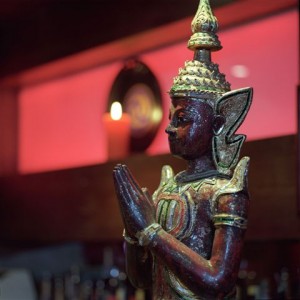 Karma is an important concept for Buddhists, Hindus and Sikhs. Translated from the Sanskrit, it means simply “action”. Because karma is used in a number of ways and contexts this can be confusing…Stone’s take on karma is common – glossed over as an outcome that is the result of something done in the past – or even a past life. But the law of karma states that it’s the motive behind one’s actions that affects the outcome of that particular act. “The earthquake in China or the cyclone in Burma have much to do with environmental factors,” says Dhammadassin. “To invoke karma is more to do with our desire to nail things down and find someone to blame. But that’s not ours to do.” [
Karma is an important concept for Buddhists, Hindus and Sikhs. Translated from the Sanskrit, it means simply “action”. Because karma is used in a number of ways and contexts this can be confusing…Stone’s take on karma is common – glossed over as an outcome that is the result of something done in the past – or even a past life. But the law of karma states that it’s the motive behind one’s actions that affects the outcome of that particular act. “The earthquake in China or the cyclone in Burma have much to do with environmental factors,” says Dhammadassin. “To invoke karma is more to do with our desire to nail things down and find someone to blame. But that’s not ours to do.” [
 rather than issues, then this is pretty much the sort of melodrama you can construct. It becomes about determined women, less experienced young men, and more hardened older men who know how to mix a stiff drink. You would find these personalities in any tubby novel for sale at an airport bookstore. Mercado, Archuleta and Cook are far more complex and interesting persons than the stock characters that the media has imposed on them. But at least the wrong done them by simplification is minor; they are after all entertainers, and if they attain their potential they will have plenty of opportunity to tell their real stories.
rather than issues, then this is pretty much the sort of melodrama you can construct. It becomes about determined women, less experienced young men, and more hardened older men who know how to mix a stiff drink. You would find these personalities in any tubby novel for sale at an airport bookstore. Mercado, Archuleta and Cook are far more complex and interesting persons than the stock characters that the media has imposed on them. But at least the wrong done them by simplification is minor; they are after all entertainers, and if they attain their potential they will have plenty of opportunity to tell their real stories.
